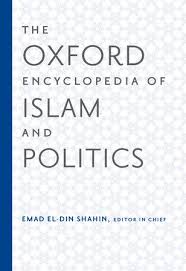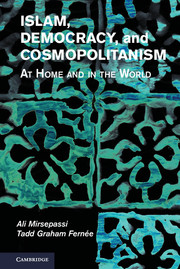Missio Dei? Evangelicalism and the New Politics
University of Chester, Hollybank
12th June, 2014, 10.00 – 4.00 pm
2nd Call for Papers – Deadline March 31st 2014
Aim and Context
The aim of this conference is to facilitate a space whereby the innovative mission, praxis and ecclesiologies of evangelical Christianity (including inner-urban areas and including Pentecostal and charismatic contributions) is enabled to enter into dialogue with emerging themes within contemporary Evangelical theology including new understandings of the concepts of Missio Dei, Kingdom of God, Incarnation, Atonement and Trinity.
The overall trajectory observable in many disciplines outside systematic theology (especially sociology of religion and human geography and public policy) suggests a shift within the evangelical Christian communities towards more activist and holistic models of mission, which are also characterised by a willingness to experiment in new ways of ‘being church’. There are also shifts in a different direction where instead of forms of rapprochement with the public sphere, a certain bifurcation emerges as a response to the new complexity and plurality of the public space. It is fair to say that both trajectories within contemporary British Evangelicalism (including Pentecostalism and Charismatic traditions) are having an increasing strategic impact on the political and social fabric of British society and public policy.
This conference will represent a unique opportunity to track and debate this shift at both theological and missional/ecclesiological levels, as well as from perspectives that lie outside the Christian tradition. Relevant perspectives or ‘lenses’ by which to track these shifts include doctoral level research from urban and missional practitioners within contemporary British evangelicalism, systematic and practical theologians and interdisciplinary perspectives. The event concludes with a public lecture by Revd Steve Chalke MBE and Founder of Oasis Trust on the theme of The Progressive Power of Religion in the Public Sphere from within the framework of a contemporary evangelical perspective. This lecture will be open to both conference delegates and the wider public.
Although emerging primarily from a British context, papers are welcomed from other contexts and situations outside the UKwhich reflect the ongoing and dialectical relationship between evangelicalism (including Pentecostalism and Charismatic experience), urbanisation, culture and politics.
Structure
The conference will feature 3 keynote lectures of 30 minutes reflecting the three perspectives of the conference:
Practitioner - Krish Kandiah, Evangelical Alliance;
Theology - Dr Stephen Holmes, University of St Andrews;
Sociology of Religion/Public Policy – Dr Anna Strhan, University of Kent
In between these lectures will be parallel paper sessions which further reflect on the theme of Missio Dei – Evangelicalism and the New Politics from the following perspectives: a missional/urban/ practitioner/integral mission strand; a theological strand; and a sociology of religion/public policy strand.
Central to the aims and outcomes of the conference will be papers on:
· New directions in evangelical theology
· New emphases in doctrine and biblical theology including Missio Dei, Kingdom of God, Incarnation, Trinity, atonement, Holy Spirit
· Influence of evangelicalism on politics – both past and present
· Spectrums within Evangelical practice, belief and ecclesiology
· Cutting edge issues within evangelicalism
· Role of evangelical worship and ecclesial/political formation
· Evangelicalism, politics and integral mission
· Emerging church and emerging Christianity
· New expression of urban mission and evangelical identity
· Black majority churches and the public sphere
· Charismatic churches and the public sphere
· Quantitative measurement of evangelicalism and its social impact
· Post evangelicalism and the new politics
· Evangelicalism and culture
· Evangelical/post evangelical geographies of religion
Call for Papers
For this call we are looking for 20 minute papers that respond to any of the above themes and can be accommodated into one of the disciplinary strands outlined above. This is a second call for papers – deadline for submission: March 31st, 2014.
Some papers from non-UK contexts on the themes of the conference will be welcomed. Please send an abstract of ca. 250 - 300 words to Dr Chris Baker (chris.baker@chester.ac.uk) or Dr Ben Fulford (b.fulford@chester.ac.uk)
Registration and enquiries
Please register by the 30th May, 2014. Secure online registration is available at:
http://storefront.chester.ac.uk/index.php?main_page=product_info&cPath=6&products_id=289&zenid=npral1rnoj5jk7svqv28tccf65
For any enquiries, please contact Carly McEvoy: c.mcevoy@chester.ac.uk +44 1244 511031
Please visit http://www.chester.ac.uk/find-us and click ‘Chester Campus’ for travel and location instructions





